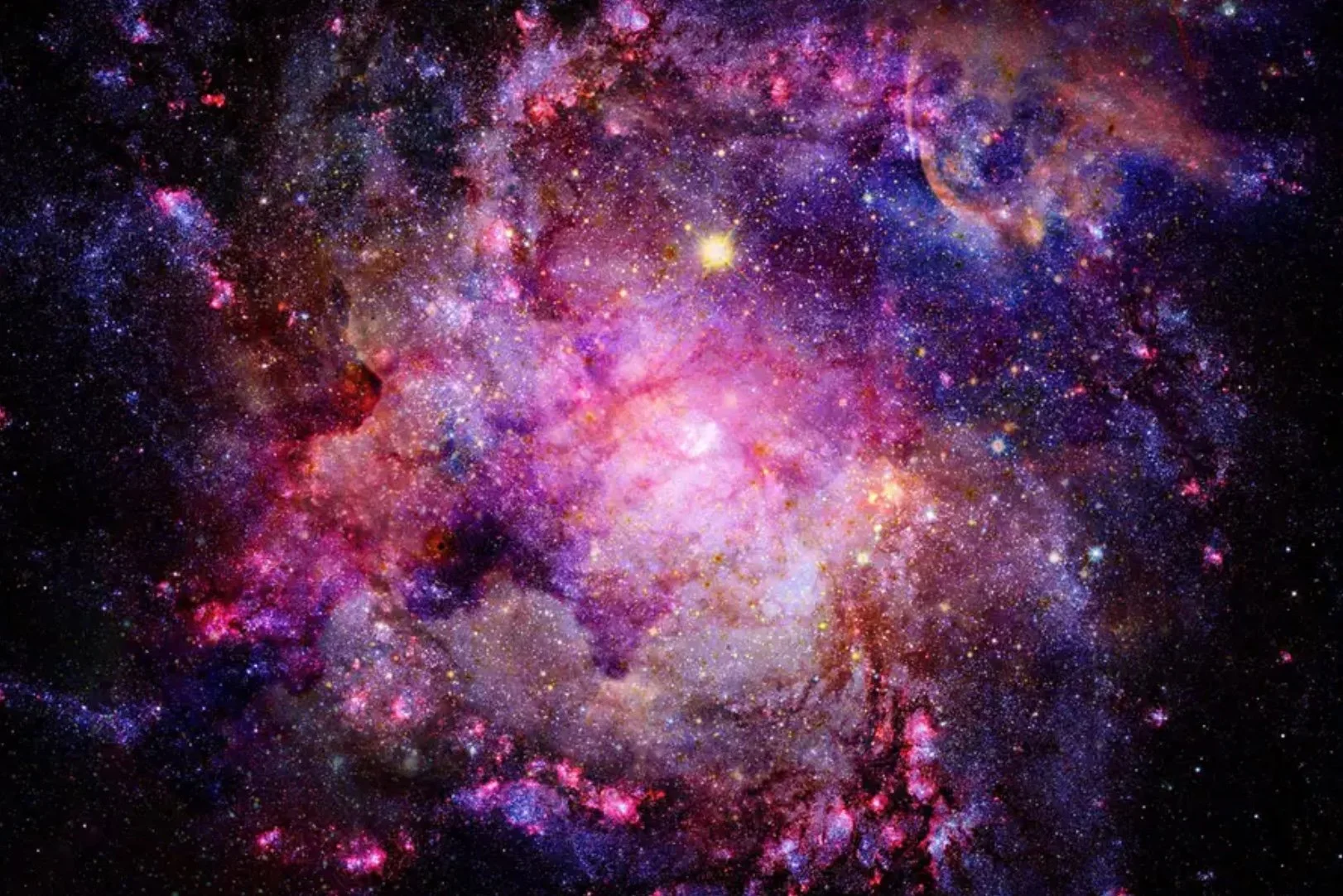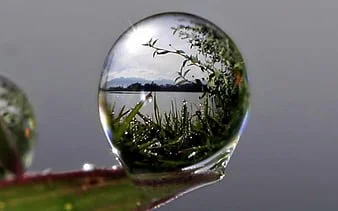By The Landlord
"You can't have everything. Where would you put it?" – Steven Wright
“Two things are infinite: the universe and human stupidity; and I'm not sure about the universe.” – Albert Einstein
“And this our life, exempt from public haunt, finds tongues in trees, books in the running brooks, sermons in stones, and good in everything. I would not change it.” – William Shakespeare, As You Like It
“Everything has beauty, but not everyone sees it.” – Confucius
“Limitless undying love which shines around me like a million suns it calls me on and on across the universe.” – John Lennon
“Why should things be easy to understand?” – Thomas Pynchon
"Everything you see I owe to spaghetti." – Sophia Loren
A man said to the universe:
“Sir, I exist!”
“However,” replied the universe,
“The fact has not created in me
A sense of obligation.” – Stephen Crane, War Is Kind and Other Poems
Two years ago I embarked on what I thought would be a minimal exploration of the idea of nothing, which, perhaps unsurprisingly, turned into something. And then quite a lot more. Then even more, and in particular, after many, many song nominations, came some excellent playlists picked by our guest of the week. It became a micro-macro boomerang
This time, we're going in another direction. Not seeking songs literally about anything and everything, but the idea or expression of of everything, perhaps seeking or trying encapsulate the complete picture, the whole shebang, glimpsing the totality, the full caboodle, enchilada, big ball of wax, the sum of it all, the full works, all inside the confines of the form we know and love that’s … song.
How might that express itself? With all-encompassing promises to be or give everything? Huge expressions of all-embracing love, or definitions of what's important, such as family, work, or the natural world? Or abstract, mathematical of philosophical ideas about infinity and the universe? Or something else? Ironically, but unsurprisingly one person's everything isn't necessarily another's. One person might embrace a world of stars. Another person's everything might embrace a world of shoes, or teddy bears.
So where do we start with ways to define ‘everything’? Perhaps with a bit of a scientific profile? Here’s one way, in the form of physics, and a formula for everything, known as the Standard Model equation:
And if this intrigues you, here's a whole playlist of scientific explanations with handy drawings about waves and particles, photons, Shrödinger's Cat, Higgs Theory and other quantum ideas and paradoxes:
But perhaps more fun is last year's Oscar-winning clever indie movie, Everything Everywhere All At Once, a multiverse-themed story about a stressed laundrette owner, Evelyn, played by Michelle Yeoh, who, following a scary visit to to an oddball, intimatingly bureaucratic tax clerk played by Jamie Lee Curtis, glimpses and experiences alternative realities and versions of herself and the people in her life. Watch out for those massive hot-dog digits ...
But, where does that go, if as Albert Einstein put it: "The only reason for time is so that everything doesn't happen at once." Nicely put, Albert.
The multiverse idea has been around a long time, arguably thought up by pre-Socratic Greek philosopher Anaximander in the sixth century BC, reappearing more prominently in the late 19th century and in the 20th, among many theorists, including Eels frontman Mark Oliver Everett's father Hugh Everett III, originator of the many-worlds interpretation of quantum theory. Contemporary American theoretical physicist and mathematician Brian Greene has even defined nine types of multiverses, including: quilted, inflationary, brane, cyclic, landscape, quantum, holographic, simulated, and ultimate. That's a lot of, well, everything.
But Winston Churchill grumpily poo-pooed the multiverse idea, writing in his autobiography, My Early Life that:
"Certainly nothing could be more repulsive to both our minds and feelings than the spectacle of thousands of millions of universes – for that is what they say it comes to now – all knocking about together forever without any rational or good purpose behind them.”
But, Winston, life is messy, complicated and infinite. That's one reason why we never tire of it.
The great writer Philip K. Dick, meanwhile, is next to get served at the Bar, and responding to Winston, cheekily replies: “Well, if you think this Universe is bad, you should see some of the others.”
Now, trying not to let this topic get too big is not easy, and there's a growing crowd of heavy duty thinkers and personalities in the Bar wanting to say more about it. So who's first?
“The universe is a pretty big place. If it's just us, seems like an awful waste of space, says Carl Sagan, holding a copy of his book, Contact, about the possibility of alien life, and then from Cosmos: “The Cosmos is all that is or was or ever will be. Our feeblest contemplations of the Cosmos stir us – there is a tingling in the spine, a catch in the voice, a faint sensation, as if a distant memory, of falling from a height. We know we are approaching the greatest of mysteries.”
From a scientific point of view that certainly captures goosebump emotions in rather a poetic way. Who can follow that?
“... And everything burned in blue, everything a star,” chips in the poet, Pablo Neruda, quoting from his 100 Love Sonnets, surely glimpsing in his head an image a bit like this:
The Universe ‘n’ everything …
Perhaps then it is the grand scope of nature that is a starting point on the idea of everything.
“Look deep into nature, and then you will understand everything better,” adds Albert Einstein, always enjoying himself here.
His time-travelling drinking partner Marcus Tullius Cicero is also here, and reckons that: “If you have a garden and a library, you have everything you need.” Albert nods in approval.
But what about time?
“Everything happens to everybody sooner or later if there is time enough,” announces George Bernard Shaw.
“Yes, everything passes. Nobody gets anything for keeps. And that's how we've got to live,” adds fellow writer Haruki Murakami.
Time, surely, is also a matter of perception, and our own psychology?
“Through our eyes, the universe is perceiving itself. Through our ears, the universe is listening to its harmonies. We are the witnesses through which the universe becomes conscious of its glory, of its magnificence,” says the philosopher Alan Watts.
He also adds that: “You are a function of what the whole universe is doing in the same way that a wave is a function of what the whole ocean is doing.”
So does that mean we are all small and insignificant?
“Well, you may think I’m small, but I have a universe inside my mind,” adds a determined Yoko Ono.
“But what if everything is an illusion and nothing exists? In that case, I definitely overpaid for my carpet,” chips in Woody Allen.
Is ‘everything’ therefore all about the inner self?
As a gong and a muyu fish drum sound in another corner of the Bar: “The mind is everything. What you think you become,” come the wise words of Buddha.
“He who has health, has hope; and he who has hope, has everything,” adds the writer and philosopher Thomas Carlyle.
“By trying to understand everything, everything makes me dream,” says Gustave Flaubert.
And to complete what Yoko started, here’s John Lennon: "I believe in everything until it's disproved. So I believe in fairies, the myths, dragons. It all exists, even if it's in your mind. Who's to say that dreams and nightmares aren't as real as the here and now?”
Where then does that lead us?
“No psychologist should pretend to understand what he does not understand... Only fools and charlatans know everything and understand nothing,” says Anton Chekhov.
Is therefore knowledge ‘everything’?
“Try to learn something about everything and everything about something,” advises Thomas Huxley
“In three words I can sum up everything I've learned about life: it goes on,” says Robert Frost.
“People who think they know everything are a great annoyance to those of us who do,” adds Isaac Asimov, trying to keep it light.
“Yes darling. I can resist everything except temptation,” slips Oscar Wilde inevitably in.
No hot dogs: for Sophia Loren everything is down to spaghetti …
So with these writers around, perhaps it’s time to ask some other creatives about ‘everything’:
“Intuition is the key to everything, in painting, filmmaking, writing, business - everything, says film-maker and artist David Lynch. “I think you could have an intellectual ability, but if you can sharpen your intuition, which they say is emotion and intellect joining together, then a knowingness occurs.”
“Everything becomes a little different as soon as it is spoken out loud.” Says Hermann Hesse, slightly regretting speaking up.
“Yes, but personality is everything in art and poetry,” adds Johann von Goethe, keeping the German presence at large.
Personalities often go hand in hand with power, so what of politics? Bob Marley is in the house, keen to mention it, but also distance himself from it:
“Everything is political. I will never be a politician or even think political. I just deal with life and nature. That is the greatest thing to me.”
But wine-drinking, womanising regular Napoleon Bonaparte can’t help but get involved now the word power and politics have been mentioned, candidly announcing that “If you wish to be a success in the world, promise everything, deliver nothing.”
Another military mind of a different kind is here in the form of Dwight D. Eisenhower, who distils it more down to this: “Plans are nothing; planning is everything.”
Tragic should-have-become-president Robert Kennedy is also in the house reflecting on the idea of politics and everything, and with a wry look, recalls how “one-fifth of the people are against everything all the time.”
All things considered, certainly can’t please all the people all the time, but one person who certainly pleased Robert’s brother John F., who tried to please everybody, especially the ladies. Hedy Lamarr describes how “Jack Kennedy always said to me, Hedy, get involved. That's the secret of life. Try everything. Join everything. Meet everybody.” That certainly reveals a life of a different kind of everything.
But finally, let’s just here from a few remaining guests about music, seeing as this is a song topic.
“Music is a moral law. It gives soul to the universe, wings to the mind, flight to the imagination, and charm and gaiety to life and to everything,” announces Plato.
“A symphony must be like the world. It must contain everything,” says the grandly demonstrative Gustav Mahler.
Demonstrative in a different way, Henry Rollins is also here, taking it from his genre perspective. “Questioning anything and everything, to me, is punk rock.”
And finally, excited about his forthcoming last ever (again) performance, and headlining Glastonbury to boot, Elton John has also got excited about the idea of everything in this week’s topic. “If you write great songs with meaning and emotion, they will last forever because songs are the key to everything. Songs will outlast the artist and they will go on forever if they are good.”
You certainly can’t argue with that, whatever your taste in music. And with that, it’s time to hand over to this week’s overseer of everything, making a welcome return to the chair since last June’s stint on invisibility, the infinitely knowledgable Noodsy! Please place your song suggestions in comments below in time for deadline at 11pm UK time on Monday (BST) for playlists published next week. How to find it all in a song? Give it your all.
Everything reflected in one drop?
New to comment? It is quick and easy. You just need to login to Disqus once. All is explained in About/FAQs ...
Fancy a turn behind the pumps at The Song Bar? Care to choose a playlist from songs nominated and write something about it? Then feel free to contact The Song Bar here, or try the usual email address. Also please follow us social media: Song Bar Twitter, Song Bar Facebook. Song Bar YouTube, and Song Bar Instagram. Please subscribe, follow and share.
Song Bar is non-profit and is simply about sharing great music. We don’t do clickbait or advertisements. Please make any donation to help keep the Bar running:




